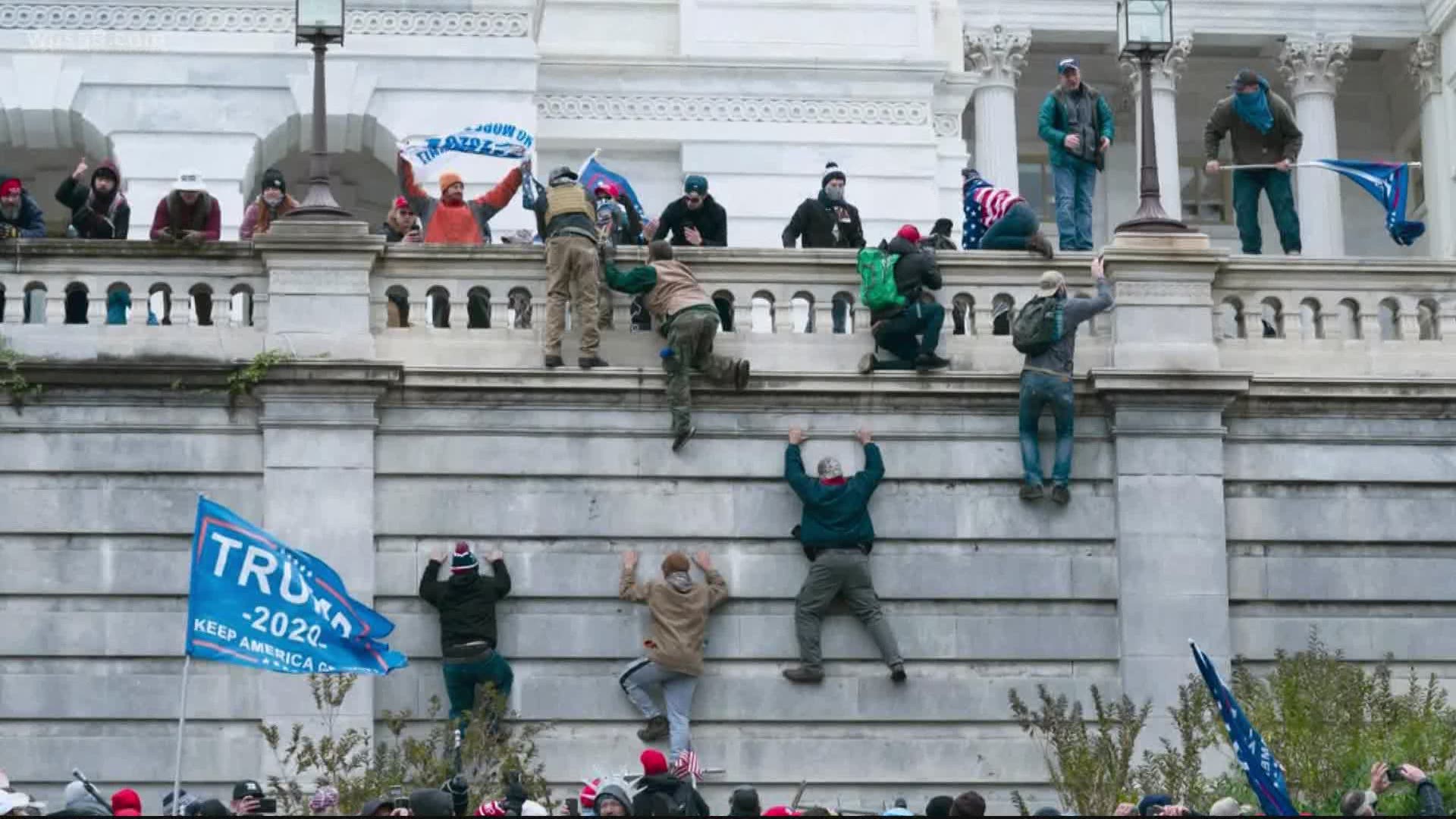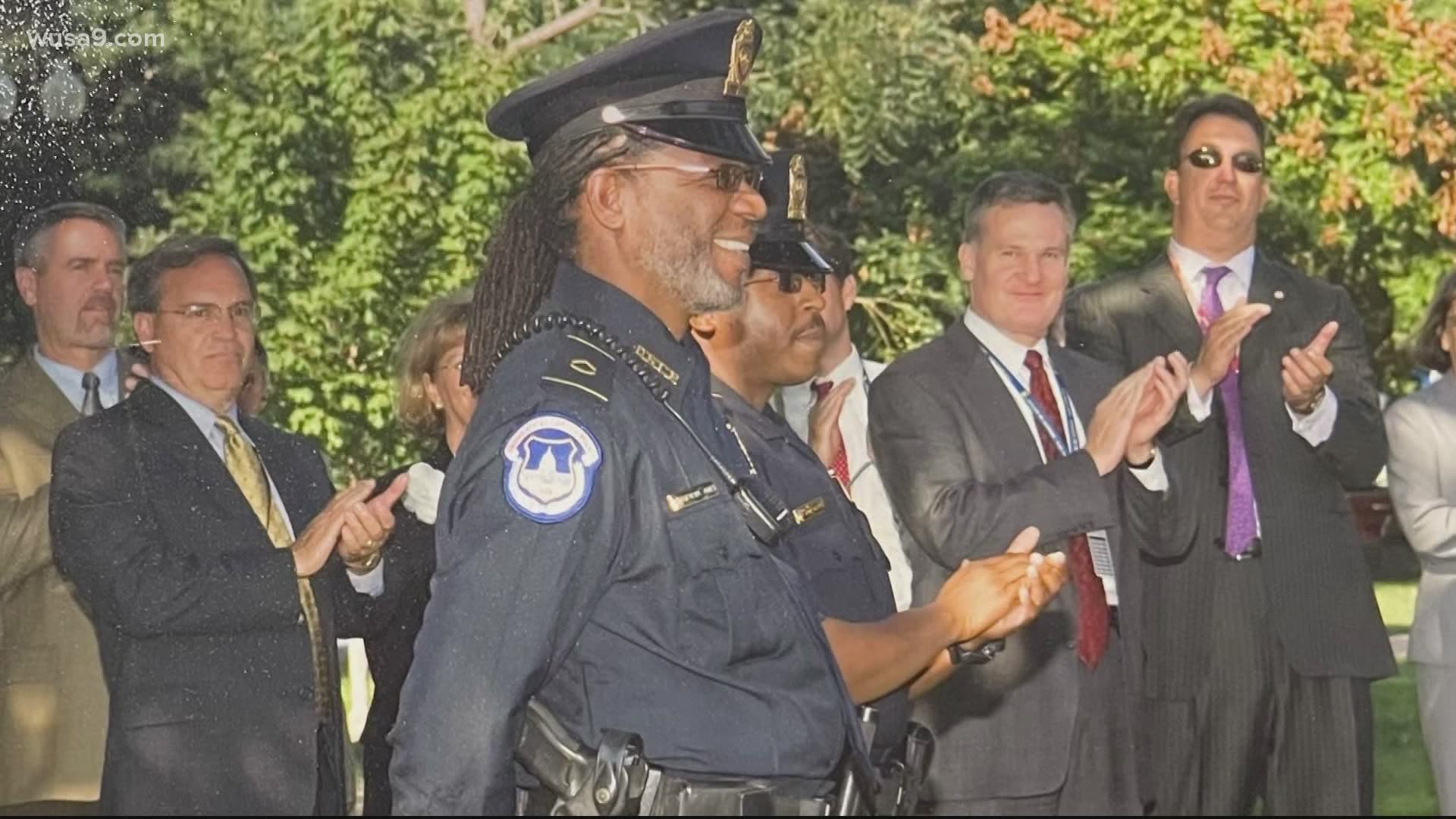WASHINGTON — U.S. Capitol security officials testified before a closed session of the House Appropriations Committee on Tuesday that they need to “harden this campus” after the events of January 6 – portending possible changes to the intentionally open and accessible Capitol building.
Acting House Sergeant-at-Arms Timothy P. Blodgett and acting U.S. Capitol Police Chief Yogananda D. Pittman both submitted testimony to the committee about law enforcement’s failure to stop insurrectionists entering the Capitol during the joint session of Congress earlier this month.
Pittman, who took over as acting chief following the departure of former Chief Steven A. Sund in the wake of Jan. 6, said she took responsibility for the department’s failure and that the department full expects to “answer to you and the American people for our failings on January 6th.”
“On January 6th, in the face of a terrorist attack by tens of thousands of insurrectionists determined to stop the certification of Electoral College votes, the Department failed to meet its own high standards as well as yours,” she said in written testimony released after the hearing.
But, Pittman said, she doesn’t believe there was anything the Capitol Police could have done to prevent insurrectionists from overwhelming the roughly 1,200+ officers and storming the Capitol under the building’s current open configuration.
“In my experience, I do not believe there was any preparations that would have allowed for an open campus in which lawful protestors could exercise their first amendment right to free speech and at the same time prevented the attack on Capital grounds that day,” Pittman said.
Blodgett, the House’s new acting sergeant-at-arms, agreed, saying the building’s security would have to be hardened and that new measures, including a less rigid communication structure, would have to be put into place. Blodgett also said Capitol security would need to create a real-time system for the retrieval of Congressmembers and staff in a crisis.
Prior to the 6th, Pittman said it was already clear that militia groups and white supremacist organizations would be attending.
“We also knew that some of these participants were intending to bring firearms and other weapons to the event,” she said. “We knew that there was a strong potential for violence and that Congress was a target.”
Pittman said Capitol Police took a number of steps to prepare, including requiring all 1,200+ officers to be on duty, mobilizing seven civil disturbance units and activating its SWAT team, including counter snipers. She said former Chief Sund also requested the Capitol Police Board declare a state of emergency and authorize a request to secure National Guard support – a request which was denied.
One the building was breached, Pittman said DC Police sent a hundred officers to assist within minutes, but that the Capitol Police Board waited another hour before granting Sund authorization to bring in the National Guard.
She highlighted other failures as well, including supplies not being staged – requiring personnel to travel to the barricade line to resupply officers – and the possibility that the Capitol lockdown procedure was not “consistently followed.”
In the wake of the events at the Capitol, Pittman said many Capitol Police officers are now suffering from PTSD, “…particularly after the loss of two of our officers directly and indirectly as a result of the events of January 6th.”
Acting DC Police Chief Robert Contee testified that one of his officers, Officer Jeffrey Smith, a 12-year veteran of the force, took his own life after being part of the department's response to the Capitol on January 6.
Smith is now the third officer to die after the events at the Capitol. Capitol Police Officer Brian Sicknick died of a stroke after being struck in the head with a fire extinguisher, and Capitol Police Officer Howard Liebengood took his own life.
Preventing a repeat of January 6 will ultimately require the building to become a more secure facility Pittman said.
“I believe the multiple reviews, after actions, and investigations currently underway will conclude that the Capitol’s security infrastructure must change and that the Department needs access to additional resources – both manpower and physical assets,” she said.
Congresswoman Jennifer Wexton (D-Va.) was appointed to the House Appropriations Committee Monday. She told WUSA9 after hearing the closed-door briefing, "I was surprised that they had this intelligence that there was going to be a mass gathering and it could turn violent and they didn't take it seriously. They didn't take the steps that they could have to really make sure everybody was protected and the worst-case scenario didn't happen."
When asked about future Capitol complex security measures, Rep. Wexton added, "One of the things that has been teriffic about the Capitol is how the grounds are open and people will be walking over to votes and there will be people walking their dogs and taking their kids for walks in strollers and I never want to lose that."
We're tracking all of the arrests, charges and investigations into the January 6 assault on the Capitol. Sign up for our Capitol Breach Newsletter here so that you never miss an update.


